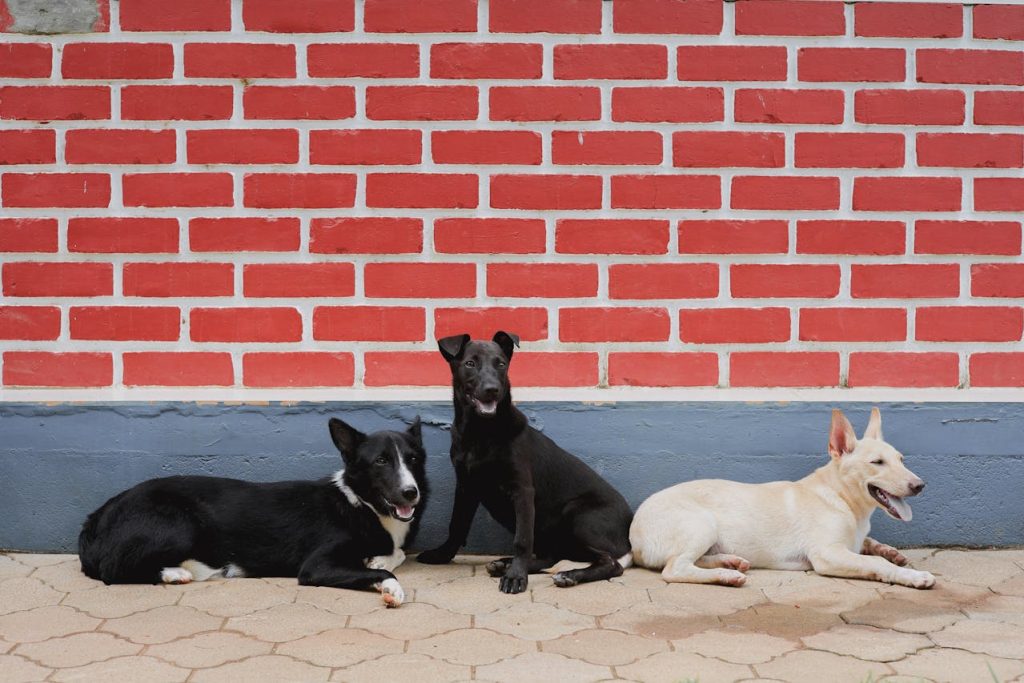Jicama, a root vegetable, is low in calories and high in fiber, vitamin C, and water content. It’s safe for dogs in small, well-prepared portions, promoting hydration and digestive health. Integrating jicama into a dog’s diet supports balanced nutrition and adds variety to their meals.
In this post, we’ll see whether you can feed your dog jicama, what are its benefits, harmful effects and most importantly, things to know (facts) about jicama. Additionally, we would also take a look at the nutritional value and the proper way to feed dogs, jicama. Finally, we will answer the most important questions about this topic and share the final verdict.
But, firstly – let’s see, can dogs eat jicama?

Table of Contents
ToggleCan Dogs Eat Jicama Safely?
Yes, dogs can eat jicama safely in moderation. Offer small slices, around 1-2 tablespoons, to avoid digestive issues. Serve it raw and peeled, removing seeds. Jicama is rich in fiber, vitamin C, and low in calories, supporting pooch’s digestion and immune system. However, excessive intake may cause stomach upset.
Benefits of Feeding Your Dog Jicama (5 Benefits)
Jicama is beneficial to dogs. Here is a list of 5 benefits of jicama for dogs:
- Hydration: Jicama’s high water content aids in keeping dogs hydrated, particularly in hot weather.
- Digestive Health: Its fiber content supports healthy digestion and may alleviate constipation in dogs.
- Weight Management: Low in calories, jicama can be a satisfying snack for overweight dogs without adding excessive calories.
- Immune Support: Rich in vitamin C, jicama boosts dogs’ immune systems, helping them fight off illnesses.
- Dental Health: Crunchy jicama can help remove plaque and tartar buildup, promoting better oral hygiene in dogs.
Harmful Effects of Feeding Your Dog Jicama (4 Harms)
Jicama can be harmful to dogs. Here is a list of 4 potential harmful effects of jicama for dogs:
- Digestive Upset: Excessive consumption of jicama may lead to gastrointestinal discomfort, including gas, bloating, or diarrhea in some dogs.
- Choking Hazard: Due to its crunchy texture, large pieces of jicama can pose a choking risk, especially for smaller dogs or those prone to gulping food.
- Allergic Reactions: In rare cases, dogs may experience allergic reactions to jicama, resulting in symptoms such as itching, swelling, or hives.
- Toxicity: While jicama itself is not toxic to dogs, certain parts of the plant, such as the seeds, contain toxins that could be harmful if ingested in large amounts.
Things to Know About (Facts) about Jicama
In this section, we will discuss some facts and things to know about jicama.
| Attribute | Description |
|---|---|
| Root Vegetable | Jicama is a tuberous root vegetable, belonging to the legume family. |
| Low in Calories | With only approximately 38 calories per 100 grams, jicama is a low-calorie food option. |
| High in Fiber | Jicama is rich in dietary fiber, promoting healthy digestion and aiding in weight management. |
| High in Vitamin C | It contains a significant amount of vitamin C, which supports the immune system and promotes skin health. |
| High Water Content | Jicama has a high water content, contributing to hydration and aiding in temperature regulation. |
| Crunchy Texture | The crunchy texture of jicama makes it a satisfying snack for dogs and helps with dental health by removing plaque. |
| Allergen-Free | Jicama is typically free from common allergens, making it suitable for dogs with food sensitivities. |
| Low in Fat | It is naturally low in fat, making it a healthy option for dogs, especially those prone to obesity. |
| Potassium Source | Jicama contains potassium, an essential mineral that supports heart health and muscle function. |
Nutritional Value of Jicama
In this section, we will discuss the nutritional value of jicama.
| Nutrient | Amount per 100g | Unit |
|---|---|---|
| Calories | 38 | kcal |
| Carbohydrates | 8.82 | g |
| Fiber | 4.9 | g |
| Sugars | 1.8 | g |
| Protein | 0.72 | g |
| Fat | 0.09 | g |
| Vitamin C | 20.2 | mg |
| Potassium | 150 | mg |
| Calcium | 12 | mg |
| Iron | 0.6 | mg |
How to Feed Dogs Jicama?
Here we will explain in four proper steps how to properly feed your dog jicama:
- Wash: Thoroughly wash the jicama to remove any dirt or residue.
- Peel: Peel the jicama to remove the tough outer skin, as it can be difficult for dogs to digest.
- Cut: Slice the jicama into small, bite-sized pieces to prevent choking hazards.
- Serve: Offer the prepared jicama pieces to your dog as a snack or mix them into their regular food.
Things to Take Care of (Precautions) before feeding your Dog Jicama:
- Remove Seeds: Ensure to remove any seeds from the jicama before serving, as they can be a choking hazard.
- Moderation: Feed jicama to your dog in moderation to prevent digestive upset, as excessive consumption may cause gastrointestinal issues.
- Allergies: Monitor your dog for any signs of allergic reactions, such as itching or swelling, when introducing jicama into their diet.
- Consult Veterinarian: If you have any concerns about feeding jicama to your dog, consult with your veterinarian for personalized advice.

Can Dogs Eat Alternative Forms of Jicama?
In this section, we will discuss if dogs can eat alternative forms of jicama such as jicama peel, jicama sticks and more.
Can Dogs Eat Jicama Peel?
No, dogs should not eat jicama peel. It can be difficult to digest and may pose a choking hazard. Always remove the peel before feeding jicama to your dog to prevent any potential gastrointestinal issues. Jicama peel contains negligible nutrients and may cause digestive discomfort. It’s best to avoid feeding it to your dog to ensure their safety and well-being.
Can Dogs Eat Jicama Sticks?
Yes, dogs can eat jicama sticks. Offer small sticks, around 1-2 inches in length, as a crunchy snack. Ensure the jicama is raw and peeled to prevent choking hazards. Jicama sticks are low in calories and high in fiber, making them a healthy treat option for dogs.
Can Dogs Eat Jicama Slices?
Yes, dogs can eat jicama slices. Offer thin slices, about 1/4 inch thick, as a crunchy snack. Ensure the jicama is raw and peeled to prevent choking hazards. Jicama slices are low in calories and high in fiber, promoting healthy digestion in dogs.
Can Dogs Eat Jicama Cubes?
Yes, dogs can eat jicama cubes. Offer small cubes, approximately 1/2 inch in size, as a healthy snack. Ensure the jicama is raw and peeled to avoid choking hazards. Jicama cubes are rich in fiber and vitamin C, supporting pooch’s digestive health and immune system.
Can Dogs Eat Jicama Shreds?
Yes, dogs can eat jicama shreds. Offer finely shredded jicama as a crunchy topping or mix-in for their regular food. Ensure the jicama is raw and peeled to prevent choking hazards. Jicama shreds are low in calories and high in fiber, providing a nutritious addition to your dog’s diet.
What Vegetables Other than Jicama can a Dog Eat?
Dogs can eat a variety of vegetables in moderation, including:
- Carrots
- Green beans
- Broccoli
- Sweet potatoes
- Pumpkin
- Peas
- Zucchini
- Cucumbers
- Spinach
- Celery
Always ensure vegetables are cooked or prepared in a way that makes them safe and easily digestible for dogs.
Frequently Asked Questions (FAQs)
In this section, we will discuss some frequently asked questions regarding jicama and feeding them to dogs.
What is the nutritional content of jicama?
Jicama, also known as Mexican yam bean, is rich in dietary fiber, vitamins C and E, and contains essential minerals like potassium and iron. It’s a tuber similar in texture to turnips and radishes, though much sweeter, providing a healthy, low-calorie snack option.
Can dogs eat the skin of jicama?
No, dogs should not eat the skin of jicama. The skin contains rotenone, a compound that is toxic to dogs. In contrast, the flesh of jicama is safe and nutritious, offering dietary fiber and vitamins without the harmful effects of its skin.
How does jicama compare to carrots in terms of dog-friendly vegetables?
Both jicama and carrots are safe and nutritious for dogs, offering dietary fiber and vitamins. However, carrots are slightly higher in beta-carotene, which supports vision health, while jicama provides more vitamin E and a lower calorie count, making it a better option for weight management.
Are there any vegetables that dogs should avoid?
- Onions and garlic: Contain compounds that can cause anemia.
- Grapes and raisins: Toxic, can lead to kidney failure.
- Avocado: Contains persin, harmful to some animals.
- Mushrooms: Certain varieties can be toxic.
Conclusion
In conclusion, while dogs can safely eat jicama in moderation due to its low calorie and high fiber content, it’s crucial to ensure they’re introduced to it gradually to avoid digestive issues. Overall, jicama can be a nutritious addition to a dog’s diet when given responsibly.



